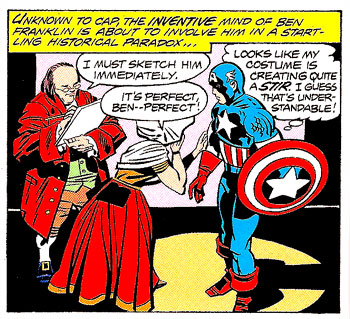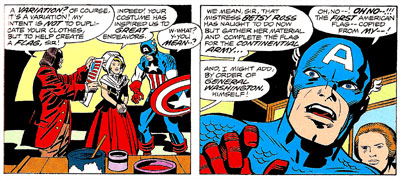I’m enjoying our George Scialabba event, and I enjoyed George’s book. My contribution will be up tomorrow, or thereabouts. But I want to ask a separate question of our author: what has he changed his mind about? Which of these pieces look, to him, dated or short-sighted? I assume he declined to reprint anything he now thinks is just not worth reading anymore, but I suspect some of this stuff looks critically mixed in retrospect. [click to continue…]
Posts by author:
John Holbo
Lemme horn in on Quiggin territory here. I just flew home to Singapore from New York and read about a third of Justin Fox’s The Myth of the Rational Market: A History of Risk, Reward, and Delusion on Wall Street [amazon] on the flight. (You can view my takeoff here.) Verdict: it’s good! Chapter 1 contains a lively portrait of Irving Fisher. He was, I have learned, a boldly quantitative economic pioneer who pronounced in print just before the crash of ’29 “stock prices have reached what looks like a permanently high plateau.” He lost his personal fortune in the Great Depression. (So he’s a nice emblem for Fox’s book – quants come to practical grief when reality neglects to live up to ideal model standards.)
For his doctoral thesis [completed in 1893] he devised the most sophisticated mathematical treatment yet of economic equilibrium, and he also designed and built a contraption of interconnected water-filled cisterns that he described as “the physical analogue of the ideal economic market.” Many decades later, economist Paul Samuelson judged this work to be “the greatest doctoral dissertation in economics ever writter.” It launched Fisher into a leading role among the world’s still-sparse ranks of mathematical economists. (10)
I want to hear more about his bold, pre-20th Century design for a compucistern system. [click to continue…]
Hey look! Our book (Belle’s and mine) – Reason & Persuasion: Three Dialogues by Plato – is available for pre-order from Amazon! And I’ve uploaded the final version for free viewing on Issuu. Yes! You can just click the image below read the whole book online in a full-screen flash-based thingy. It works quite well, I find.
You can also click here if you want to download the whole book as a PDF. (Harder to find the download link via that other method.) The PDF is print-locked but otherwise functional. (Download requires a simple sign-in. But you can’t argue with the price.) Finally, the official book site is here. Now I want all you instructors to adopt it for course use. (Free online! How can you neglect to avail yourself of this fine resource?)
But selling you my book about Plato isn’t everything. There’s also … the life of the mind! Here’s a question for discussion. And it will do double-duty as a foretaste of our upcoming George Scialabba event. [click to continue…]
Have you seen this yet? Terrible yellow eyes. It’s an art project with various folks contributing Where The Wild Things Are -inspired works. It’s a lot of fun. This one, for example, by Alina Chau (whose blog is here):

I think this one might be my favorite, however. (By Adam Volker.) Which do you like best?
Happy 4th of July! Since I’ve been pondering creative rights and copyright extension, I’ll take this patriotic occasion to remind you of that famous scene in Captain America’s Bicentennial Battles in which Cap travels back in time only to have the design for his uniform become the original inspiration for the US flag. Cap is upset. Why should Betsy Ross get credit, after all? A creative continuum conundrum. (via Bully.)




A different ethics/etiquette question. My Plato book will be out in paper form in a month or so. When I made the deal with my publisher to let the e-stuff go free (which might reasonably be deemed a serious drag on the paper market) I promised to take it upon myself to work the e-angle fairly aggressively, marketing-wise. And now I ask myself: where do I draw the line between marketing and spamming? Normally I wouldn’t even consider sending an email to 200+ people I don’t know. That’s spam. But sending a bunch of philosophers I don’t know a short email telling them, simply, that there’s an Intro Plato text available free – just click – isn’t so obnoxious. Is it? Spamming means: not giving a damn that you are putting a huge number of people to the mild inconvenience of deleting something they don’t want. Maybe we need a theory of ‘just marketing’, on the lines of ‘just war’: it’s ok to send a mass email so long as you have taken reasonable precautions to exclude those with non-consumer status from the target zone. But that’s a bit vague. Suppose you were in my position. I’ve committed to being an aggressive e-marketer, which of course is in my own self-interest as well: how can I wage an aggressive but just e-marketing campaign?
Having knocked Mark “digital barbarism” Helprin around in a trio of posts – in one of which I remarked that the guy should probably listen to EconTalk to learn that libertarians are actually skeptical about the merits of copyright extension – I am duty-bound to report that Helprin was just a guest on EconTalk. [click to continue…]
A couple weeks ago Matthew Yglesias marveled at the heady philosophical stuff French teens have to tackle. I think he got one answer wrong. He says he thinks it’s absurd to desire the impossible. I don’t think so at all. This is just the pony principle. Wishing is free, so you might as well wish for whatever you were going to wish for, plus a pony. A sparkle magic unicorn pony. It’s fun to wish – and wishing is a form of wanting. It is one of your best entertainment values. Thus, on strictly utilitarian grounds it makes sense to wish for the impossible.
What is delicate, I will admit, is settling how and where desire crosses belief and expectation and action. (As Wittgenstein says, wanting and trying to get are very closely related.) For example, this ad crosses over into Kierkegaardian territory.

It is absurd to expect to get more from something than you think it is possible to get from anything. Especially if it’s instant coffee.
Still, I don’t think it is absurd to want coffee that would be better than life itself could possibly be. That would be a damn fine cup of coffee.
Am I right?
I like this pair of images from this ‘costume and dresses’ set.

And these three women, sitting for a portrait:

Thought for the night: I find it very difficult to judge the age of people in old photos. Probably you’ve had the same experience. It reminds me of that section in Robert Musil, The Man Without Qualities, where he reflects on how faces go in and out of fashion. But partly it demonstrates – what is obviously at least half-true – that in judging people’s age we rely on deductions from their clothes and hair styles and such. (We know that such and such clothes are worn by 20-somethings, so someone dressed that way is probably 20-something.) But that doesn’t seem quite right either. Thoughts?
OK, I’m fact-checking one last bit from my Plato book. I’m discussing the famous legend that over the door of Plato’s academy there was an inscription: ‘no non-geometers allowed’. Here’s a page that contains a bit of background if you are unaware of this legend (which is pretty weakly sourced to a commentary on a commentary on Aristotle, I think it is. So who knows.) Anyway, I mention in the text that there are religious overtones, which is most certainly true. But here’s my problem. I read somewhere that over the doors of Greek temples, or at the boundaries of certain holy areas – sites forbidden to those who are unclean, by the terms of Drako’s Law – ‘no unclean persons allowed’. I distinctly recall reading, specifically, that the unclean bit was ‘unjust’; that is, (I presume) ‘adikaios’. So take Plato’s ‘ageometros’, swap it out and plug in ‘adikaios’ and – bob’s your uncle – you’ve got the thing you might read over a temple door. Trouble is: I went back to footnote this bit and it wasn’t where I thought it was. So I’m wondering whether what I have in my book is strictly accurate. Are there surviving inscriptions that are almost like the one Plato is supposed to have put over his door, with only one word different? Or are there reliable reports of the existence of such inscriptions? It’s not a big deal, because the general point about religious overtones stands: the inscription forbids the ‘impure’ from entry, as Drako’s law forbids access to ‘the holy things’ to those who are presently ritually unclean (for whatever reason). But I don’t want my book sullied by the impure inclusion of an epigraphic untruth, Zeus forbid!
Whether or not Theory jargon incapacitates humanities folks, communication with regular folks-wise, I think it might provide a leg-up when it comes to understanding Republican governor infidelity pressers. Here’s Mark Sanford: “And the biggest self of self is indeed self.” True, untrue, or neither? Discuss. Defend your answer on the grounds that it is necessary for the progress of World-Spirit.
Here’s the context:
But I’m here because if you were to look at God’s laws, in every instance it is designed to protect people from themselves. I think that that is the bottom line of God’s law. It is not a moral, rigid list of do’s and don’ts just for the heck of do’s and don’ts, it is indeed to protect us from ourselves. And the biggest self of self is indeed self. If sin is in fact grounded in this notion of what is it that I want, as opposed to somebody else.
What do you make of this?
To punish myself for panning Helprin’s book without reading, I decided to go back and reread the excerpt at least. And that old op-ed. And I’ve decided: there’s more merit here than I had realized. Let me lay it out for you. (But first, ask yourself: wouldn’t you rather be reading Squid and Owl? Isn’t that a more healthful use of your time?) [click to continue…]
Henry and a few others suggested I was a bit hard on Douthat for not being hard enough on Helprin. Douthat may be guilty only of the venial sin of obligatory civility in the face of a bad book, not the mortal sin of Higher Broderism. (Although one hopes the critic’s motto is not ‘if you can’t say something nice, don’t say anything at all.’) It really was his last paragraph that set me off, and it’s worth saying why. I’ll leave Helprin and even Douthat mostly out of it. [click to continue…]
Matthew Yglesias goes way too easy on Ross Douthat’s book review of Mark Helprin’s Digital Barbarism: A Writer’s Manifesto [amazon].
Let’s start with the book itself. It is, I gather, a grossly metastasized, page-wise, rewrite of his shockingly ignorant (it was widely and correctly noted at the time) NY Times op-ed from a couple years back, “A Great Idea Lives Forever, Shouldn’t Its Copyright?”. And why exactly does it follow that terrible ideas deserve book deals, one might ask? (Here’s the exhaustive wiki-buttal that op-ed inspired.)
Larry Lessig wrote a long review of Barbarism last month, which he followed up here. Having not read Helprin’s book – and I even read Jonah Goldberg’s book, sweet heaven help and forgive me! – I’m not in a position to add anything except that Lessig’s response leaves me in little doubt that Helprin has contrived to learn nothing from that initial op-ed debacle. He still has no idea whatsoever what the other side’s views are, let alone what the grounds for them might be. (I guess there’s something inadvertently apt about the ‘barbarism’ in his title, if it’s true that the term derives from some Proto-Indo-European speaker’s sense that foreigners are just going ‘bar-bar’, not actually saying anything.) [click to continue…]
I think the new Coconut Records album, Davy, is Beatlesesque (but less utterly brilliant), Elliott Smithish (but less pained), Weezerlike (but less New Wave ironic-astringent) – and several other things I can’t quite put my finger on – power pop jingle-jangly loud-soft goodness and wholesomeness and not excessive smartypantsness. It’s somewhat better than the new Bishop Allen album Grrrr (just for comparison purposes to something obscure in the general vicinity.) Coconut Records is a solo project by Jason “you saw him first in Rushmore” Schwartzman, formerly of the band Phantom Planet. I mention all this because Amazon has <em>Davy</em> on sale for $1.99 for the next several hours or so. [UPDATE: sale’s over. Sorry.] (Here’s the myspace page.)
Davy is assisting me in the performance of various repetitive tasks today, by letting my mind clack happy through the CD racks of memory, trying to pin down all the little influences. And it’s well produced.
I also like the new Bishop Allen album Grrr pretty well. I mention that because I feel they have been unfairly abused by Pitchfork, which has gotta hurt. Grrr definitely deserves better than a pitiful 3.5. I give it a 7. “The Ancient Commonsense Of Things” is damn catchy. (Myspace page here.)
Thanks for those podcast links to the talks from the Cohen conference, Harry. Very interesting. Let me talk briefly about one. David Estlund’s paper on “Utopophobia” – which, I see, is also available as a PDF download in draft form. The title gives you the right general idea about the topic: why are people hostile to utopian thinking – to ‘ideal theory’ in political theory and philosophy? To what degree is such hostility justified; to what degree unjustified?
It’s a good paper.
Let me begin with a mild expression of total difference of opinion. Estlund naturally addresses the concern that ideal theory is a waste of time because it’s useless. ‘It’s never gonna happen.’ He makes a comparison to higher mathematics, which is also generally acknowledged to be pretty inapplicable to anything that might be empirically real. He doesn’t push this analogy, so it’s not like weight is resting on it. Still, it seems to me so much more natural to say that ‘ideal theory’, if useless, is probably useless in the way a painstakingly-constructed model train system in your basement is useless – or that writing Mary Sue-style fanfic about the Form of the Good is useless. That is, it’s a rather indulgent, mostly harmless private make-believe sort of affair, but really not much like higher mathematics, honestly. I guess I’m impressed that you could be enough of a Platonist about it to presume the higher maths angle, in passing, with all the attendant implications of precision and purity and truth. (As someone who just wrote a book about Plato, part of me is happy that the old ways never die. But the part of me that is a die-hard later Wittgensteinian can only shake its head in wonder that the old ways never die. Back to the rough ground!)
Right. That’s out of the way. (You can’t refute an incredulous stare, nor does one count as an objection. We’re done.) Overall, it seems to me that Estlund says a lot of smart stuff that is relatively small-bore – stuff about how certain applications of ‘ought implies can’ can be fallacious. I found myself nodding and saying: ‘yes, I never noticed that before. It seems right.’ So: good. But these generally good points don’t feel large enough, in the aggregate, to cover the grand area staked out by the title: “Utopophobia”.
Estlund makes one good point that might be grand enough. But I think it needs amplification. And he leaves a really big point out. I’m going to use that as an excuse to tell jokes. [click to continue…]